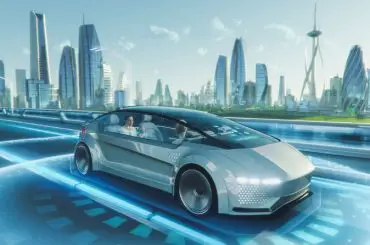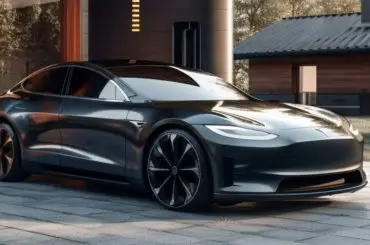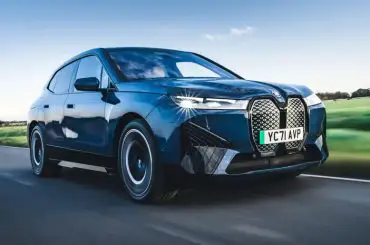Contents
Electric vs Hybrid Vehicles | Introduction
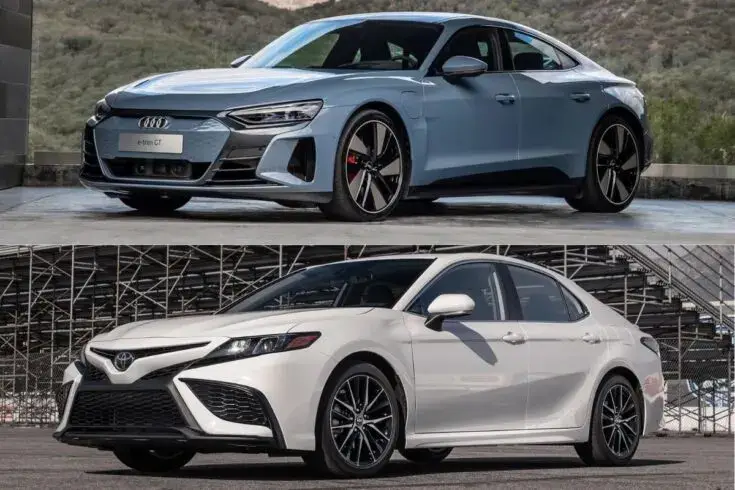
As the world moves towards a more sustainable future, the automotive industry is undergoing a significant transformation. Electric and hybrid vehicles are gaining popularity as alternatives to traditional gasoline-powered cars. However, there is often confusion regarding the differences between these two types of vehicles. In this article, we will explore the distinctions between electric and hybrid vehicles (electric vs hybrid vehicles), highlighting their unique characteristics and benefits.
1. Electric Vehicles (EVs)

Electric vehicles, commonly referred to as EVs, are powered entirely by electricity. They rely on rechargeable batteries to store energy, which is used to propel the vehicle. Unlike internal combustion engines (ICE), EVs do not produce tailpipe emissions, making them environmentally friendly. Here are some key features of electric vehicles:
a. Battery-Only Power:
EVs use a large battery pack to power an electric motor. These batteries can be recharged by plugging the vehicle into an electrical outlet or a dedicated charging station. The range of electric vehicles has significantly improved in recent years, with some models capable of traveling over 300 miles on a single charge.
b. Zero Emissions:
One of the most significant advantages of electric vehicles is their zero tailpipe emissions. By eliminating the need for gasoline or diesel fuel, EVs help reduce air pollution and greenhouse gas emissions, contributing to cleaner and healthier environments.
c. Regenerative Braking:
Electric vehicles often utilize regenerative braking technology, which converts the kinetic energy produced during braking into electricity. This energy is then stored in the battery, increasing the overall efficiency and range of the vehicle.
2. Hybrid Vehicles
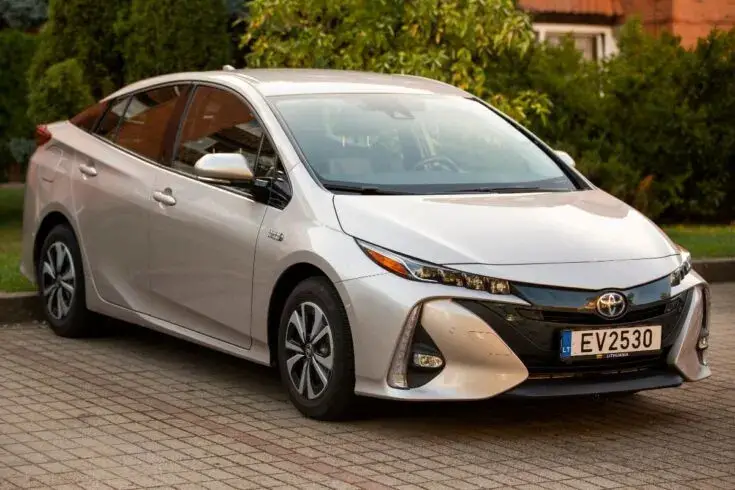
Hybrid vehicles combine an internal combustion engine with an electric motor and a battery. They offer a bridge between conventional gasoline-powered cars and fully electric vehicles. Here are the main characteristics of hybrid vehicles:
a. Dual Power Sources:
Hybrid vehicles have both a gasoline engine and an electric motor. The engine and the motor work together to power the vehicle, with the electric motor assisting the engine during acceleration or operating independently at low speeds.
b. Fuel Efficiency:
Hybrid vehicles are known for their superior fuel efficiency compared to traditional gasoline cars. The electric motor helps reduce fuel consumption by providing assistance during acceleration and powering the vehicle at low speeds or in stop-and-go traffic.
c. Regenerative Braking:
Similar to electric vehicles, hybrids also employ regenerative braking technology to capture and store energy that would otherwise be lost during braking. This feature contributes to improved efficiency and extends the range of the vehicle.
d. Different Hybrid Types:
There are different types of hybrid vehicles available, including parallel hybrids, series hybrids, and plug-in hybrids (PHEVs). Plug-in hybrids can be recharged by plugging them into an electrical outlet, offering a limited all-electric driving range.
3. Key Differences
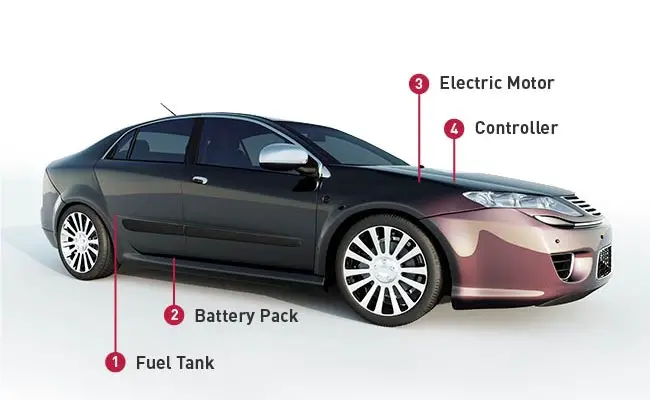
The primary difference between electric and hybrid vehicles lies in their power sources and the extent to which they rely on electricity. Electric vehicles operate solely on electricity, relying on a rechargeable battery pack, while hybrids combine a gasoline engine with an electric motor and battery. Here are some key distinctions:
a. All-Electric Range:
Electric vehicles have a longer all-electric range, as they solely rely on electricity. Hybrid vehicles, on the other hand, have a limited electric range and primarily rely on the gasoline engine.
b. Emissions:
Electric vehicles produce zero tailpipe emissions, while hybrids produce lower emissions than conventional gasoline cars but still rely on the combustion engine.
c. Charging Infrastructure:
Electric vehicles require access to charging infrastructure, such as charging stations or outlets, for recharging. Hybrids do not depend on charging infrastructure since they can rely on gasoline.
Conclusion
Electric and hybrid vehicles are both viable alternatives to traditional gasoline-powered cars, offering improved fuel efficiency and reduced emissions. Electric vehicles run solely on electricity, providing zero tailpipe emissions and contributing to a greener environment. They offer longer all-electric ranges and require access to charging infrastructure for recharging.
On the other hand, hybrid vehicles combine a gasoline engine with an electric motor and battery. They provide better fuel efficiency compared to conventional cars, as the electric motor assists the engine and reduces fuel consumption. While hybrids produce lower emissions than gasoline cars, they still rely on the combustion engine and are not entirely emissions-free.
Choosing between an electric or hybrid vehicle depends on various factors, including individual needs, driving habits, access to charging infrastructure, and environmental concerns. Here are some considerations:
- Daily Commute and Driving Habits: If your daily commute is within the electric range of an EV and you have access to charging facilities at home or work, an electric vehicle might be suitable. However, if you frequently travel long distances or do not have convenient access to charging infrastructure, a hybrid vehicle may be a more practical option.
- Environmental Impact: If reducing your carbon footprint and contributing to a cleaner environment are your primary concerns, an electric vehicle is the more environmentally friendly choice. With zero tailpipe emissions, EVs offer significant environmental benefits. Hybrid vehicles, although cleaner than traditional cars, still rely on fossil fuel combustion and produce some emissions.
- Infrastructure and Convenience: Consider the availability of charging infrastructure in your area. Electric vehicles require access to charging stations or the ability to install a charging unit at home, which may not be as widespread compared to gasoline stations. Hybrids offer the convenience of relying on gasoline and can be refueled at any gas station.
- Cost Considerations: Electric vehicles generally have higher upfront costs compared to hybrids. However, they often have lower operating and maintenance costs due to the reduced reliance on gasoline. Hybrids offer a more affordable initial investment and can provide savings on fuel expenses.
In conclusion, electric and hybrid vehicles represent significant advancements in automotive technology, offering improved fuel efficiency and reduced emissions compared to conventional gasoline cars. Electric vehicles are fully electric and produce zero tailpipe emissions, while hybrids combine an electric motor with a gasoline engine. The choice between the two depends on individual needs, driving habits, access to charging infrastructure, and environmental considerations. Ultimately, both electric and hybrid vehicles contribute to a more sustainable and greener transportation future.


